Posted on 12/30/2022

The colder weather means your car or truck may require extra attention before driving off into the snow. Winter maintenance checks are essential for keeping your ride running smoothly, from checking tire pressure to changing fluids. What more should you look out for during winter maintenance checks? Here are five things to consider when performing winter maintenance checks. Battery and Charging System The first thing you should do before starting your vehicle is to ensure the battery and charging system has been checked out by a professional. Remember, to start an engine in cold weather, you need a fully charged battery in good condition. If you notice any issues with the charging system, you may need to replace the alternator or even the entire system. You should also check the charging cables and connectors for corrosion. Wiper Blades Wipers are an essential aspect of keeping your vehicle clean and safe. Ensure they are working correctly and are not clogged with snow or ice. Al ... read more
Posted on 11/30/2022
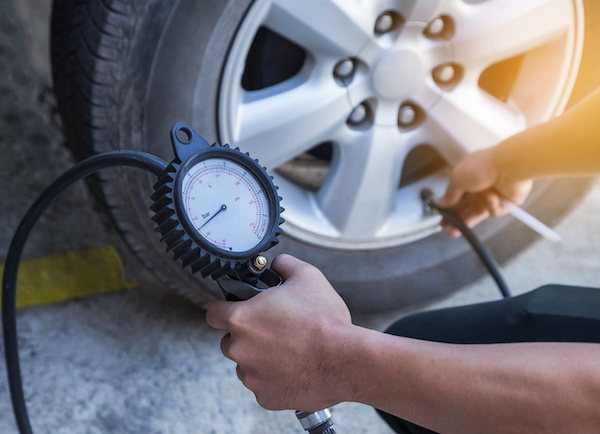
Now that it is November in Denver, you’re probably greeted with the cold and crisp air every time you go outside to get into your Mercedes-Benz. The last thing you want to see after getting in is the tire pressure monitoring system light or tire pressure warning light. Have no fear as you’re probably not the only one who is dealing with that problem. It is considered normal for your tires to fluctuate as it gets colder outside. It is simple science that you probably didn’t think much of when you were in school. Heat causes air pressure to expand while cold causes it to contract. For every 10 degrees it drops in Denver, your tire pressure should decrease by 1 psi or pounds per square inch. That is why you may be welcomed with the TPMS light. Whenever you catch this warning, it is important for you to top them off soon. What Are the Dangers of Driving with Underinflated Tires? Lowered fuel economy Uneven tire tread Premature tire wear Increased risk of blowou ... read more
Posted on 10/28/2022
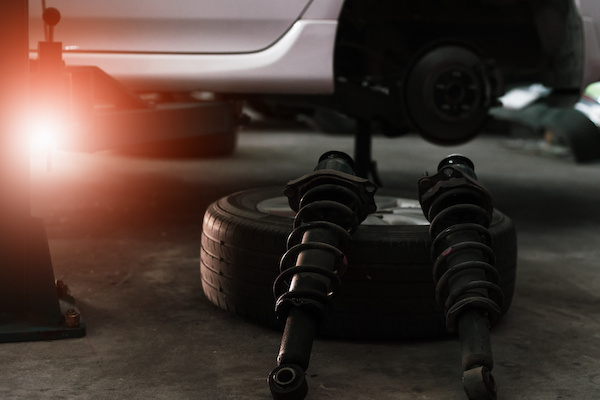
Most drivers do not know many parts of the vehicle besides the wheels and body wear and tear over time. Some parts, such as shock absorbers, remain unattended, yet they are essential for your car to run smoothly. Unfortunately, a time will come when you must replace them for your vehicle to run at peak condition. What Are Shocker Absorbers? Your vehicle has a suspension system that buffers the vehicle from rough bouncing, especially if you drive on rough roads. The shock absorbers remain a critical part of the suspension system. They often use liquid or compressed gas to absorb the bounces caused by potholes and speed bumps. After How Long Should You Change Shock Absorbers Assigning the minimum years or miles you should expect to change your shock absorbers is virtually impossible. Many variables, such as road conditions and vehicle use, affect the shock absorbers' lifespan. Expect the suspension parts to last at least four years if you subject your vehicle to excessive use. H ... read more
Posted on 9/30/2022
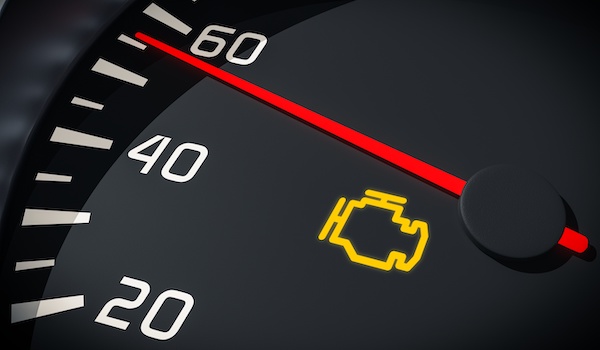
The check engine warning light is a part of every vehicle's on board diagnostics system. When something goes wrong with your ignition, fuel system, exhaust, or other related system, this amber/yellow light will come on as a response to inform you of the trouble. The problem can be further deciphered by reading the car’s OBD II code. When your check engine light comes on, we advise that you bring your car to the professionals at MB Clinic Inc to diagnose your check engine light problem. Check engine lights should be handled with caution. Here is what you should do on your part when this warning symbol appears on your dash: Observe the Light - Is the light still or flashing? These behaviors can mean two completely different things. If it flashes continuously for more than several seconds, it is an indication that there is an emergency problem. You should stop driving immediately. Pull Over Safely - Regardless of whether your check engine light is blinking ... read more
Posted on 8/31/2022
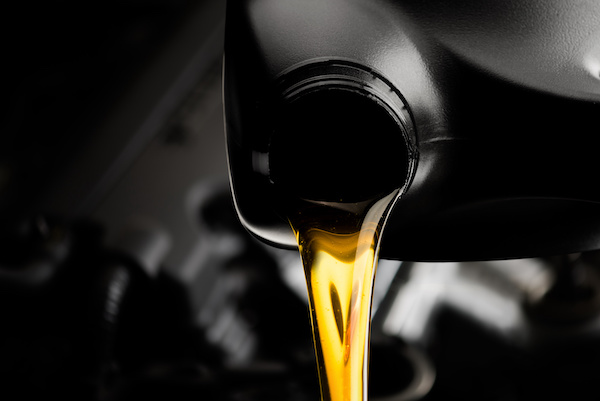
There are many types and brands of motor oil on the market, but it is important you know which ones are suitable for your Mercedes-Benz. After all, your vehicle is a major investment that you don't want breaking down from a small mistake. There's conventional, full-synthetic, synthetic blend, and high-mileage oil. However, if you drive a Mercedes-Benz vehicle, it is recommended by the manufacturer that you only add synthetic oil to your car. In this blog, we will be breaking down the pros and cons of synthetic oil. PROS OF SYNTHETIC OIL Synthetic motor oil is highly advantageous. They are engineered to be consistent in formulation, and they are very resistant to extreme temperatures. The viscosity will stay the same in freezing cold and blistering hot weather so that you don't have to worry about metal-to-metal contact occurring in your engine. Synthetic oils are great at lubricating, but they have other additives with greater benefits as well. You can ex ... read more
Posted on 7/28/2022
.jpeg)
A fuel filter in cars is imperative in removing sediments, contaminants, impurities, and other pollutants from fuel before it gets into the fuel injector and finally to the engine. It is a cartridge consisting of filtering paper that acts as a barrier restricting dirt in the fuel. The fuel filter is prone to get dirty and clogged, leading to multiple preventable car troubles that might be costly to repair. It is vital to know signs or symptoms that your filter requires urgent replacement to avert any adverse effects on your Mercedes-Benz’s engine. Here are some indicators of a malfunctioning fuel filter you should never overlook. Symptom 1: Engine Failing to Start Fuel filters prevent dirty fuel full of impurities from getting into the injectors and the engine. Without periodic maintenance that includes cleaning and replacing the filters, they are susceptible to getting clogged, leading to many engine troubles that make it a hassle starting. You may notice a slow engine start ... read more
Posted on 6/28/2022

The hot summer weather is finally here, along with a higher volume of traffic. Most people tend to hit the roads more often in the summer months. This makes automotive maintenance for your Mercedes-Benz even more important during the summer. If you want to avoid breakdowns and accidents, follow these tips below: A/C - Summer isn’t summer without working air conditioning. Have a mechanic check out your Mercedes-Benz’s A/C system to ensure you’re good on refrigerant. Cooling System - Overheating is the top cause of summer vehicle breakdowns. To beat the heat, you will need to ensure your cooling system is in tip top shape. Get a coolant flush if you want to be extra cautious. Oil Change - You should always follow Mercedes-Benz’s specifications for oil change intervals. Running your engine with low or dirty oil can cause costly engine repairs down the line. Lights - Check to see if your headlights are working and lit properly. Windshield Wipers - Summer ... read more
Posted on 5/27/2022

Driving on the highway can be a considerable risk to take with your Mercedes-Benz. There can be stopped traffic, stopped vehicles, and road obstacles like fallen objects, roadkill, and even potholes. For this reason, you must be prepared to take on any challenges on the road. For this month's blog, we will be giving you some advice on avoiding dangers and how to be safer when driving on the freeway. When driving in Denver, CO, you never know when you might get into an accident. Vehicles of all sizes may fly past you at high speeds or be hidden in your Mercedes-Benz's blind spot. Here are some of the extra precautions you should take to drive safely on the highway: Avoid blind spots - Drivers with extra-large vehicles can sometimes miss others in their blind spots. Therefore, we do not recommend driving closely behind or next to a tractor-trailer. Also, don't forget to glance at your blind spots from time to time. Be careful when merging - Mergin ... read more
Posted on 4/26/2022
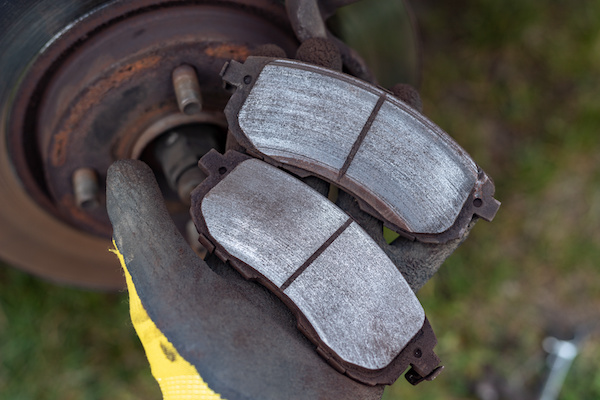
Brake pads are the most important part of your car's brakes because they slow and stop your Mercedes-Benz when you apply pressure to the brake pedal. Like all brake components, brake pads are subject to wear and tear over time and need to be replaced at regular intervals in order to keep you safe while driving. Brake pads need replacing as soon as they begin to wear down. Worn out pads can lead to diminished performance, causing your brakes to drag or even squeal when you press on the pedal. What Exactly Are Brake Pads? Brake pads are a type of friction material that is located on top of your car's braking system rotors. When you apply pressure to your vehicle's brake pedal, the discs contact these pads, slowing down or stopping your car. Breakdown of the Braking Process The braking process is a three-step process. First, your foot presses down on your brake pedal. Next, hydraulic pressure builds up in your brake system until it reaches a point where your wheels are for ... read more
Posted on 3/30/2022

It's quite impressive how you can drive with the sun on your all with a push of a button. Sunroofs and moonroofs are becoming more popular in vehicles today because they make your drives more pleasant in the warmer seasons. Just because they're considered an add-on doesn't mean that your Mercedes-Benz's sunroof maintenance should be neglected. Without proper care, your sunroof can break down and leak. Here are some of our top tips on how to take care of your Mercedes-Benz's sunroof: Don't Miss It When Washing Your Car Over time, dust, dirt, and debris can cling onto the seals and surfaces of your sunroof. Practice good cleaning habits by ensuring your sunroof gets a scrub every time you wash your car. You can also apply a small lube to the moving parts as a finishing touch. Detail It You should do a detailed cleaning of your sunroof once a year. This includes cleaning the trough, clearing out the drain tube, and checking for leaks. Keep An ... read more